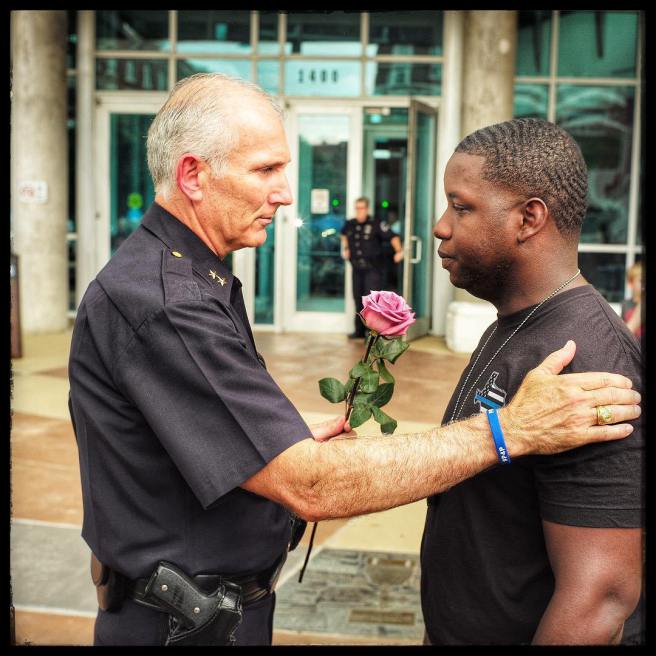Did you learn to love?
Rachel Smith | Contributing Writer for RWM | L.F.W
Did you learn to love?* The news makes me ask this question of our nation.
Did you learn to love your neighbor down the street who doesn’t look like you? Did you learn to love your classmate who has a lifestyle you disagree with? Did you learn to love your coworker who practices a different religion? Did you learn to love your friend who supports Donald Trump? Or your other friend who supports Hillary Clinton? Did you learn to love your spouse, cousin or sibling even though you were not at fault? Did you learn to love people at your job? Did you learn to love those who hate you? Did you learn to love yourself?
When the world explodes with violence, we must ask two questions, “Are we learning to love? Or, are we perfecting ways to hate each other?”
It seems that the latter question reigns. Hate manifests as mass slaughter accomplished in appalling self-righteousness, slanderous and condemning words are a volley of quips thanks to a plethora of social media outlets, and average people like you and me use the internet to post divisive comments about race, gender, religion, and any other sensitive topic. Collectively, we do not value each other, and that is a scary state because if we do not value life, we do not have much else.
We have learned to hate our neighbors with excellence, but we do not know how to love with humility.
Love–that verb encompassing patience, kindness, humility, forgiveness, truth, hope, and sacrifice–seems simple on paper, but it is difficult to achieve (I Cor. 13:4-7). As a culture, we are too lazy and prideful to love because sacrifice requires too much emotional and physical effort. Or, we don’t know how to love because culture educates us that love is a feeling and neglects the major detail that love is really about sacrifice.
Love requires that we lay down our lives for our brothers figuratively and sometimes literally (John 15:13).
It requires that we serve others humbly. It requires that we stop to help someone in need even if we are also in need. It requires that we give away our time, money, services, and even the coat off our backs because someone else needs these things more than we do. It requires that we listen to our neighbor’s pain and frustration even if we don’t understand or agree. It requires that we love those who hate us through their words, their deeds, and their apathy.
It’s easy to love people who are like us because we bond over the commonalities of politics, food, language, religion, and phenotype. It’s hard to love those who are different. A relationship runs smoothly until one person reveals he’s a democrat or Muslim. Suddenly, these wrinkles expose our prejudices, we are blinded by our differences, and the relationship disintegrates. Our prejudices dominate, and we neglect the wisdom Christ offers when it is time to navigate relationships fraught with differences.
We reject the opportunity to allow the love of Christ to mediate.
Choosing to love forces us to be introspective and examine ourselves for fear, hate and paranoia. Pride prohibits us from admitting the sin that we hate or fear our neighbor whom Christ loves. No one wants to admit he is wrong, but if we want to prevent this rapid decline into the flippant destruction of human life, we have to admit that we are wrong. We must approach our neighbors in humility and state, “I hated you, and I am sorry. Will you forgive me?”
Until Christians can do this, acting as an example, the devolution of our nation and world will occur at an alarming rate. To help curb this decline, each of us must ask ourselves, “Am I learning to love?” If we are not learning to love, we must cry, “Jesus help!” and allow Him to mend our broken lives with love.
*The title of this post was inspired by a song Jon Thurlow sang during one of IHOP KC’s 24-hour worship sessions.
— Rachel Smith | Contributing Writer for RWM | L.F.W

